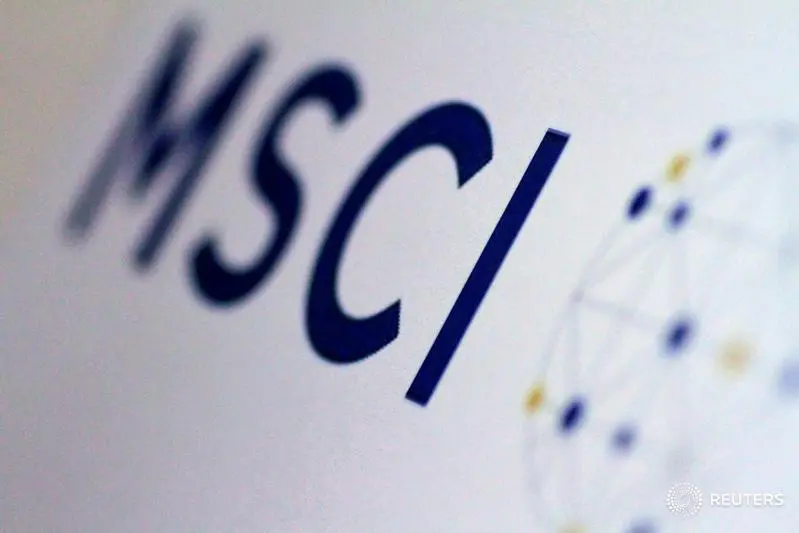PHOTO
MSCI, the world’s largest index provider, announced late on Tuesday that it would upgrade Kuwait as an emerging market from its current frontier market status - a decision that is expected to bring billions of dollars worth of investor flows from passive funds.
“The inclusion is expected to bring passive inflows of between $3 billion-$6 billion and enhance Kuwait’s reputation among foreign investors,” Raghu Mandagolathur, head of research at Kuwait Financial Centre, Markaz, told Zawya by email.
MSCI's emerging markets index is tracked by about $1.8 trillion in investment funds globally. The index provider said it would add Kuwaiti equities to the index in a single tranche at its May 2020 semi-annual index review. Nine Kuwaiti stocks will be included, giving the market approximately a 0.5 percent weight in the index.
The reclassification is subject to the successful implementation of further reforms that are expected to be introduced by Kuwait this year., such as omnibus account structures (anonymous trading) and the same national investor number (NIN) cross trades for international institutional investors. These are due to be implemented before the end of November 2019.
Currently, only local licensed entities are allowed to trade using omnibus accounts and same NIN trading is available for only certain exempt ‘non-discretionary’ local accounts, an MSCI press release said. However, the Kuwait capital market authority announced in June that omnibus structures, as well as same NIN cross trading, will be made available to international institutional investors no later than November 2019.
“The MSCI’s decision to upgrade Kuwait to an emerging market is an important milestone for the capital markets,” Markaz’s Mandagolathur said.
“Foreign institutional investors will perceive the decision as a vote of confidence in favor of Kuwait’s equity markets, acknowledging the positive changes in recent years,” he added.
The implementation of Kuwait’s market development project started back in 2017. Among the implemented enhancements were the removal of foreign ownership restrictions on listed banks and the simplification of requirements for investor registration. On April 1, 2018, Kuwait divided its stock exchange into three segments in an effort to reform the market and increase liquidity. The three market segments are the premier market, the main market and the auction market.
At the end of April this year, Kuwait’s capital markets authority launched the first part of a third phase of its market development project, paving the way for the activation of short selling, lending and borrowing shares, and other enhancements. (Read more here).
The changes have already led to FTSE Russell announcing the Kuwait market's upgrade to emerging market status in September 2017 and S&P Dow Jones Indices doing the same in December 2018.
In a press release issued on Wednesday, the chairman of Boursa Kuwait, Hamad Al-Humaidhi, said: “MSCI’s reclassification of Kuwait in its Emerging Markets Index represents an important milestone in the history of our capital markets and will bolster the country’s standing on the global investment map."
He added that the upgrade would "be a gamechanger for the domestic capital markets as it will lead to substantial inflows of foreign investment, improved liquidity, and a significant enhancement in the investing environment in the country”.
According to data from Eikon, the Kuwaiti stock market has outperformed its peers in the region in 2019, as investors have been anticipating the MSCI upgrade. The Kuwaiti premier market index is 20.45 percent so far this year.
In a report released on Wednesday, Kamco Research said that “investor expectations were clearly reflected in the recent trading activity on Boursa Kuwait".
It added that the positive performance “comes despite the recent pressure from regional geopolitical issues as well as softer oil prices”.
MSCI announced last year that it would upgrade the region's biggest stock market, Saudi Arabia's Tadawul, to emerging market status in 2019. The inclusion of Saudi stocks into the MSCI Emerging Market index began last month and is being implemented in two phases. The second phase will take place in August 2019. (Read more here).
(Reporting by Gerard Aoun; Editing by Michael Fahy)
(gerard.aoun@refinitiv.com)
Our Standards: The Thomson Reuters Trust Principles
Disclaimer: This article is provided for informational purposes only. The content does not provide tax, legal or investment advice or opinion regarding the suitability, value or profitability of any particular security, portfolio or investment strategy. Read our full disclaimer policy here.
© ZAWYA 2019





















